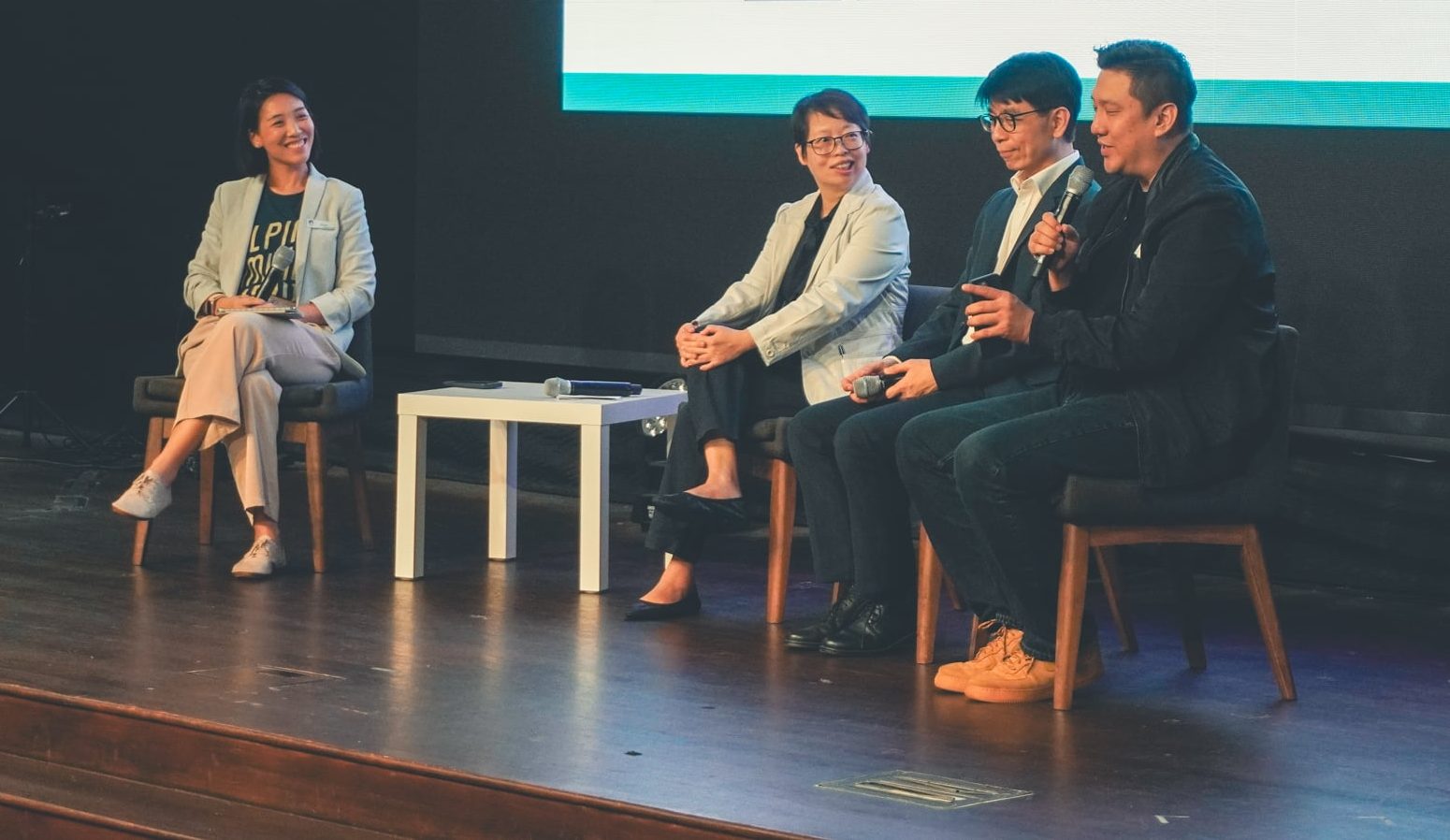How to talk to your children about the General Election
Looking at the 2025 General Election through a Christian lens
Suzanne Choo // April 22, 2025, 1:53 pm

With political conversations heating up in the run-up to the General Election (GE2025), here are some biblical principles and practical strategies for parents engaging their children on the topic. Photo from Depositphotos.com.
On May 3, Singaporeans will head to the polls to vote for their next Government. This occurs at a time of significant global and economic uncertainty.
In my first article, I touched on why it is important for Christians to care about the elections and three important biblical principles – truth, justice, inclusion – that can inform our judgements.
Engage your children in conversations that encourage them to care about the country’s future leadership and governance.
These are also relevant as we guide our children – whether they are still young or are already of voting age – to think about the elections.
Parents of adult children can take the opportunity to remind them to vote seriously and to make wise and careful decisions.
For younger children, we can also engage them in conversations that encourage them to care about the country’s future leadership and governance.
Even if your children are too young to vote, here are some ways that parents can cultivate critical and political literacies, as well as Christlikeness, from a tender age.
Discerning truth
As parents, we can encourage our children to apply critical literacy, especially since much of the information now available originates from social media.
One practical way is to pay attention to the sources of information. Is this article from a credible and established news source? What is the agenda of the author?

As an educator and mother, Dr Suzanne Choo reminds parents to encourage their children to read closely and read widely. Photo from Depositphotos.com.
Another important skill that parents can encourage their children to practise is “reading” character. For example, as we hear different proposals put forth by potential candidates, we can help our children discern the intentions and motivations of various individuals.
These are some questions we can ask: Does the person come from a place of genuine concern for others based on his or her track record? Do the policies he or she has proposed contribute to inclusivity or divisiveness? What values and virtues does he or she convey in behaviour and speech?
Considering justice
As various political parties debate issues that matter to everyday Singaporeans, parents can use this opportunity to develop children’s interest in social justice issues.
Conversations about just policies and just society should ultimately contribute to godly virtues of love and empathy for others.
In the process, parents can also develop children’s political literacy.
This involves building their knowledge about political parties and their principles, political processes and pertinent sociopolitical issues.
It also involves developing interpretative skills of moral reasoning and ethical inquiry, especially given the complex nature of social issues.
Beyond knowledge and skills, these conversations about just policies and just society should ultimately contribute to godly virtues of love and empathy for others.
Perhaps this is an occasion for young people to also consider how they, too, can be a positive influence to society.
Understanding inclusion
Inclusion does not mean Christians should embrace every kind of belief or practice, especially if this compromises fundamental biblical doctrines.
Parents can help children develop self-reflexivity, so that they are more conscious about how and why they react to online posts.
Instead of “inclusion as assimilation”, Christians can practise “inclusion as relation” by learning to co-exist well with those who have different beliefs and practices.
A study by researchers from Yale University also found that the way social media platforms are designed can encourage stronger expressions of outrage. Over time, even moderate users learn to become less moderate.
If this is so, it is important that parents help children develop self-reflexivity so that they can be more conscious about how and why they react to online posts, especially on sociopolitical matters.
In this way, children can be more aware of the factors that may trigger strong emotions and inhibit them from understanding other perspectives.
During the elections, it may be common to find divisive attacks from different political groups and supporters.
However, parents should model Christ-like behaviour in demonstrating both the pursuit of truth and grace in their speech and actions.
4 ways for families to approach the elections
In summary, here are four practical strategies for parents in guiding their children’s views on the General Election.

At the recent State of the Family 2025, Dr Choo (second from left) spoke about how Christian families can engage with culture, using the four-point framework shared below. Photo courtesy of Focus on the Family Singapore.
1. Observe
Observe what the hot-button issues are and consider why these are of importance to everyday citizens.
Consider how different political parties approach this and what their approach may suggest about their principles and identity.
2. Converse
Have conversations with children on hot-button topics and seek to build their critical and political literacies.
Allow them to ask questions and guide their interpretations by getting them to read closely (discern accuracy, credibility and bias) and read widely (compare with other sources, understand broader historical contexts and listen to other perspectives).
3. Preserve
As Christians, we also want to ground our children in God’s truth even as they are immersed in worldly affairs.
Colossians 2:6-7 reminds us:
“So then, just as you received Christ Jesus as Lord, continue to live your lives in him, rooted and built up in him, strengthened in the faith as you were taught, and overflowing with thankfulness.”
For our children to be rooted, built up and strengthened in the faith, they first need to be taught.
Here, Christian parents can teach children to see the world through a biblical lens.
In this way, they would learn to adopt what John Stott terms “double listening” – listening to the world with critical alertness to understand it, but more significantly listening to the Word of God in order to interpret the world and discover how the Gospel relates to it.
4. Serve
Finally, as a Christian family, we can be missional in our mindset.
We are not only called to be salt in preserving the truth of God’s Word, but also light in the world.
We can do so by being a living testimony when we demonstrate Christ-like character as we participate in civic discourse on social media and elsewhere.
Read Dr Suzanne Choo’s first article on why Christians should care about the elections.
RELATED STORIES:
What does it mean to be a missional family? Pastors and parents share at State of the Family 2025
How can we redeem family to transform communities and culture?: State of the Family 2025
We are an independent, non-profit organisation that relies on the generosity of our readers, such as yourself, to continue serving the kingdom. Every dollar donated goes directly back into our editorial coverage.
Would you consider partnering with us in our kingdom work by supporting us financially, either as a one-off donation, or a recurring pledge?
Support Salt&Light



